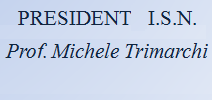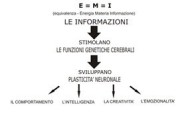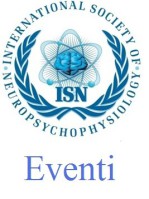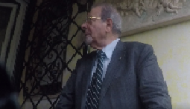PRINCIPLES FOR A UNIVERSAL
HUMAN RIGHTS EDUCATION
Michele Trimarchi and Luciana Luisa Papeschi
C.E.U. and I.P.V. Co-Presidents
UNITED NATIONS COMMITTEE ON THE RIGHTS OF THE CHILD
Discussion Day 2003
THE RIGHTS OF INDIGENOUS CHILDREN
Palais Wilson, Geneva, 19 September 2003
INTRODUCTION
The Convention on the Rights of the Child, approved by the United Nations General Assembly in 1989, defines parameters that guard against abuse and carelessness. In general it stresses that the responsibility of caring and protecting for children lies with the family, while at the same time respecting their cultural, political and material differences.
Unfortunately laws and conventions are not sufficient to guarantee the psychological and physical well-being of children. For instance, over 96% of children live in countries that are
legally bound to protect their rights, nevertheless a high percentage of juvenile prostitution, child soldiers, child labour, sexual abuse of children and school drop-outs due to poverty still exists.
The dramatic living conditions of native populations in contact with the so-called “civilized world” cause, mainly among children, not only socio-economic problems but also cultural traumas and psychological pressures which endanger the future of these peoples as well as their ancestral traditions.
To address this tragedy we believe that, beyond denunciations, a serious scientific and interdisciplinary work has to be started which stresses the basic principles of an education
that respects diversity and the dialogue between peoples. The basis of such an education can be found in the common nature of “human beings”.
The subjects of today’s two working groups devoted to the rights of indigenous children summarize the two poles not only of the individual belonging to a native population, but also of every human being wanting to affirm his dignity independently of race, colour, religion, opinion or whatever other category in which humankind is divided.
The cultural characteristics of the family mould the individual for good and evil and determine through language and reference values his cultural identity. This cultural identity is “relative”, as determined by a specific way of living.
The educational system, intervening on this background, should help the child reach awareness of his own individuality, i.e. his own dignity, which is at the same time a “unique” as well as a “universal” value for all human beings. This can only be done by acknowledging a series of values which are common to everyone, such as those expressed in the UN Convention on the Rights of the Child.
Discrimination occurs when the individual is identified only on the basis of some particular characteristics which are different from those of the majority or the people in power.
Diversity is perceived in many cultures as a potential threat to survival and it sometimes represents a silently accepted alibi to justify damaging those who are different.
So we have racism, xenophobia and other linked forms of intolerance which blindly push
individuals or communities to clash on the basis of prejudices and mental stereotypes. These are the fruits of ancestral conditioning and should be replaced by an education capable to “educere”(bring out, develop) human conscience.
The contribution that C.E.U. – the Centre for Human Evolution studies, desires to offer to the U.N. Committee on the Rights of the Child is fundamentally scientific and based on more than twenty years of study and research into the neuropsychophysiological mechanisms at the basis of human behaviour. The action undertaken by the International Association Ius Primi Viri by launching the UN Decade on Human Rights Education is based on such studies.
To state these rights is only the first step towards their concrete implementation through an education system which can offer psychological tools that enable parents, teachers and everyone present in the social environment of the child to apply them.
The rights of the child are the fundamental rights of the individual, such as dignity, respect, freedom and happiness, but their implementation depends upon how much parents are able to nurture the developing brain of their child and present information fit for his/her age.
An approach is needed which enables the child to understand ideas, different behaviours,
situations and, above all, to develop creativity conditio sine qua non for the development of consciousness, rather than forcing him to respect rules and principles without understanding them.
THE PHYSIOLOGICAL DRIVES OF HUMAN BEING
Basic human rights are encoded, are written in the human genome because there is no human being on our planet who does not wish to develop awareness and conscience of his own freedom, of his own dignity, of the sense of justice, and of the search for love.
If we don’t understand deeply human rights and if we don’t live them in ourselves, we cannot either respect them in others or communicate to others the value of such rights.
In these values we find the basic values of human beings, wherever they are born. It is only ignorance of such values, as we said, that makes it possible to violate totally the human rights already in the child when he is born. We said that children develop their defences and their strategies in order to make these human rights established and affirmed. They learn out of the environment, out of family, of society and culture, they learn to understand what is the meaning of freedom, of dignity, of justice, of love.
This is related to their evolution and to the cultural evolution of people. And yet we should not forget that the foundations of human personality are the same and they are universal.
Drives that give rise to life, to human beings, are universal both in women and in men. Now let us see what kind of education is capable of favouring the coming into awareness and the raising of our conscience in line with these values that are still alive and viable in the human being right from birth.
Dignity
The value of dignity, acknowledged by the Universal Declaration of Human Rights, represents the value of life itself, which lasts for the whole span of existence, and is independent from behaviour. Dignity is inherent in the human being just by the very fact that he/she biologically exists. Human dignity should not be mixed up with social dignity, which is linked both to the activity performed within society and to the implementation of
Special works of social and cultural utility and so on. This is a fundamental distinction: while social dignity is acquired in the span of life and depends on the social, cultural, and political context, human dignity as the value of life is inborn and untouchable, has an infinite value, cannot be sold, has no space or time limitations, and cannot be reduced or increased. Dignity, as life itself, is sacred because it was not planned or realized by man, but is a value that every human being finds inside him/herself at birth. The Universal Declaration of Human Rights recognizes equal dignity to every man and woman on earth. And human dignity - not to be mixed up, I repeat, with social dignity - cannot and must never be questioned by anyone.
Instead it has to be loved and respected.
Freedom
Potentially each human being right from his birth is seeking freedom, but it will be the family environment that will initially decide what kind of freedom will be bestowed upon this human being. The drive is genetic, physiologic, and universal.
The drive towards freedom is universal and also genetic; but the environment determines
freedom in practice, de facto, by the limitations set by the environment or by culture.
So you can easily understand what is human evolution, the evolution of human culture, of
politics, the shifting from dictatorship to democracy. It is a form of human evolution.
Dictatorships impose very powerful limitations on individual freedoms, and this brings about and causes the sensitive degree of freedom that is granted to citizens.
Parents are often dictators: you don’t need a political dictatorship to have a dictatorship. At times it is the very parents who are dictators and who prevent the child from acquiring his own space or freedom.
Therefore you must understand that freedom is a drive that exists in the human being, but
then it is the environment, the family, the society, and the State that will determine the degree of freedom that will be granted to that person during his lifetime. And this, of course, takes place through so-called education, as it is commonly depicted.
Let us reflect now for a while on an education that takes into account the fundamental human rights. If the political system creates education on the basis of the fundamental human values, we will have wise men already at fifteen years of age, because we would
allow this drive for freedom to acquire conscience and awareness and to be managed by the conscious self of the human being and not by the political forces or by the laws that must affirm or limit human behaviour, but by the conscious ego of the person who, recognising certain universal values per se, uses them to act, to think, and to create, to plan his own actions and life in his relationships with others.
This is the key for a social regeneration that respects fundamental human rights of women and men.
Therefore freedom is a drive arising in the child that then must be guided towards full expression within the environment in which the child is born and must move within the space where he lives, in respect of himself and others.
This of course requires a guide for children, a guide who knows the fundamental rights, who is aware of the fundamental human rights, and is also aware and familiar with the appropriate pedagogical method that should foster this process of evolution in the child’s conscience.
For this reason we must prepare educators: without such tools there will be no education for human rights, we will speak only of human rights that deal with macro-violations of human rights, but these are not the fundamental values written in the Universal Declaration of Human Rights.
Justice
As you all know, justice guided by the fundamental values of the Universal Declaration does not yet exist. But justice is just that gives conscience to the individual and fosters his evolution, fosters the evolution of his conscience.
What is the purpose of life for a person if not to have this evolution of his conscience in himself? To enrich one's own conscience increases wisdom in the individual, provided that
this individual acquires the tools to be just; to be just the person must use universal measurement tools. He must be a universally just person and he will be such whenever he measures his own behaviour on the basis of the fundamental values that are written in the Universal Declaration of Human Rights. Therefore the concept of justice and of the just person undergoes an evolution within society based on the evolution of systems adopted by the government and by the politicians of the same country.
No one can acquire a freedom that goes beyond the law within a state, because the law is for all, for all citizens; and if 60% of a democratic society is very ignorant, and feel that freedom is to stay shut in their houses, 40% will have to become 60% and say that freedom of movement is granted all over the planet. Therefore we have to change the law and by changing the law we’ll enable all citizens to evolve, to acquire greater freedom, a better view of what is just and what is justice. This produces evolution of the human conscience.
Our story tells us where we started from; today, when we measure ourselves against such
values, we can say: well we have reached this point, or that point, and we can understand where we want to go. But it is up to us to decide where we want to go. Undoubtedly, if we are here, we want to rule out and remove all the obstacles that prevent such human rights, to do away with all blocks set against freedoms. We hope to have justice for all, we hope that everybody can freely move over our planet, we hope that everybody can have food, water, air, and an environment for equal opportunities, but everybody must be able to think on the basis of these universal values, or else there always will be wars and conflicts.
The war that is taking place within a family, the struggles within families, the conflicts within families, does not differ from the conflicts arising among nations. Of course I am speaking about the substance of such conflicts. Micro or macro-violations are to me substantially identical.
And if you acquire this way of thinking you will substantively think on the basis of the fundamental human rights. This is the way that makes our conscience of the fundamental
human rights develop within ourselves, and if we understand properly we become educators and teachers of such values and we can, in turn, teach them to others.
Remember that the method is education, and remember that education should not use the stick and the carrot: it must stimulate and foster the development and expression of the possibilities existing within the human being. This is what will foster and favour the joy of living.
Children and boys or adults must fully understand these processes, or else each one will say what he thinks is right, and maybe he is expressing only a way of conditioning.
Human beings are unable to distinguish between what is true and what is false; whatever they have in their brains is taken as true because people don’t know that at a certain moment of their life they have been conditioned to think along these lines.
However, education, without blaming anybody, should lead to reflection on what is just, useful for the human being, for the person. Nothing will be helpful or useful or just if this is not useful for everybody (substantively speaking, not formally speaking).
Pleasure - love
Many psychologists dealt with the principle of pleasure; Freud included, as well as many
other scholars.
The principle of pleasure, which is already seen in the newborn when he is taking milk from his mother, is a fundamental value, which is absolutely necessary for the growth and
development of the person. And not only this: it creates the foundations of the personality!
We have fully studied and analysed what happens in a child who did not receive at birth the joy and pleasure of the mother and of the family. We know what kind of personality develops because of that!
Therefore, think how important it is to enwrap the child with this love, with this warmth, with this emotion at birth, because it is at this point that the foundations of the future of one’s personality are created. During that period, the right hemisphere of the brain is developing, because the right hemisphere does not develop language usually. It measures the field of force of energies that are transmitted to the child, and the warmth, the love, the harmony are forces of energy, much like a concert for instance, not more or less; these are not different energies: a Beethoven concert does not give different energy than that of the joy of a mother for a child.
It is the same identical energy for the brain!
We know how to de-codify these messages, and we know how to distinguish what is harmonic from what is not harmonic, what makes the brain react and what relaxes it, what favours the brain, what harmonises the brain.
The word “love” says little, what makes us feel whether it is or it is not is what we feel inside us, the emotions we have inside ourselves.
Now, when the child feels pleasure, when he is close to his mother who is nestling him and makes him reverberate, this is love on the part of the mother and pleasure on the part of the child. The child reverberates since he is the subject who is receiving something that he will then transmit again.
Each one of us potentially has love, since we potentially have human rights. Human rights are the driving elements of the human being, leading the human being towards the identification of the “self” within a whole; but this must take place through education. If I am aware of human rights, I also have love, I am aware of my love. Whenever I act on the basis of these values, I act with love. When I love my freedom, I love my sense of justice, I love the search for the harmony I have, I love the harmony that surrounds me in nature and aesthetics; everything is harmonic. Therefore, I can recognise what is harmonious from what is not.
Human rights, as a whole, are harmonious and whoever speaks of human rights and does not express harmony has no conscience of human rights. We cannot think of waging a war in the name of human rights unless it is a surgical procedure.
Therefore love is already in the child: the child is love, and this is shown by the fact that,
when we stimulate him with love, he gives us a great feeling of joy.
But to become capable of wilfully creating love, he must develop the ability to decide that he wants to love, that he wants to think, that he wants to create.
This is possible through an educational process which gradually pushes the child to experience criticism and self-criticism on the basis of the fundamental values of the universal declaration of human rights (dignity, freedom, justice, love). These can be recognized and identified by the higher functions of the human brain on the basis of the objectivity and objectiveness principle, fruit of the synergic work of the two hemispheres.
CONCLUSIONS
At birth the brain contains a wonderful developmental project that “unfortunately” can only be realised in conjunction with the family and the surrounding social environment.
Society and family should take it upon themselves, as stated by the UN Convention on the
Rights of the Child, the responsibility for protection and care of the child to enable it to become the subject of its life and not an object of conditionings imported from adults. in this way we will eventually reach the psychophysical and spiritual wellbeing of the child.
The serious violations of the fundamental rights of the person stem from ignorance of the “physiology of conscience development”. In fact, if the individual does not develop awareness of his genetic drives, potentialities and fundamental human rights, he also
cannot develop the willingness to pursue aims and goals in line with such rights and values.
We are therefore facing an epochal change: in order to teach human rights one has to educate educators, as science and conscience are needed of the way in which the fundamental values of the Universal Declaration of Human Rights, already existing in a child‘s brain as genetic drives, become a conscious guide of human being behaviour. To this end a “Copernican revolution” is needed, as the prize and punishment method has to be abandoned to implement the principle that every information transforms and it must make one aware of the substantial content of the information itself. The child must discover the world surrounding him without undergoing impositions, and the educator must guide him to identify and discover everything that will become his knowledge and thus his conscience.
Every human being has the right, on the basis of the principles sanctioned not only by the United Nations but by all democracies, to know and to know himself in order to experience life discovering everything which enriches him both spiritually and materially. Without this “revolution” we are bound to “self-destruction”, as strength, power and abuse of man over his fellow man offend human dignity and produce dramas, conflicts and wars. History is very clear on this, and ignorance must be replaced by knowledge of the essential values which can motivate human beings to live on our planet.
For this reason the first step towards the implementation of children’s rights is to sensitise
parents, to educate adults, to train educators and to increase government responsibility.
The condition of children is surely an “indicator” of the degree of consciousness of citizens
in a state. If this is true in absolute, the poor state of indigenous children and youth is yet a
further signal, if necessary, of the moral obligation to pass from words to facts.
RECOMMENDATIONS
1. A CONCRETE ENGAGEMENT OF STATES IS INDISPENSABLE TO REACH A REAL HUMAN RIGHTS ALPHABETISATION IN ITS SUBSTANTIAL VALUES (DIGNITY, FREEDOM, JUSTICE) AND TO DEVELOP IN THE INDIVIDUALS, THROUGH THIS PROCESS, A CONSCIOUS EGO CAPABLE OF MANAGING AND GUIDING THEIR COGNITIVE, OPERATIONAL, EVOLUTIONARY GROWTH, OR THEIR EXISTENTIAL DESTINY.
2. TO EDUCATE DOES NOT MEAN TO INSTRUCT: THROUGH INSTRUCTION ONE WANTS TO CONDITION A BRAIN TO LEARN HUMAN RIGHTS WHILE THROUGH EDUCATION THE EXPRESSION OF THE INDIVIDUAL’S HUMAN RIGHTS IS PROMOTED. SO, ONCE UNDERSTOOD, THEY WILL BECOME INVIOLABLE BOTH FOR HIMSELF AND TOWARDS OTHERS.
3.DIGNITY REPRESENTS THE GLOBAL VALUE OF THE LIFE OF A PERSON AND NO JUSTIFICATION CAN BE GIVEN TO LEGITIMATE ITS VIOLATION.
4. FREEDOM EVOLVES IN THE CONSCIENCE OF THE INDIVIDUAL IN CONSONANCE WITH BEHAVIOURAL, COGNITIVE, EMOTIONAL AND CREATIVE DEVELOPMENT.
THE CONCEPT OF JUSTICE IS GRADUALLY ACQUIRED AS PERSONALITY DEVELOPS, AND ONE MUST COGNITIVELY ADOPT UNIVERSAL EVALUATION TOOLS TO MANAGE AND SOLVE HIS INTRAPERSONAL, INTERPERSONAL AND SOCIAL CONFLICTS.






